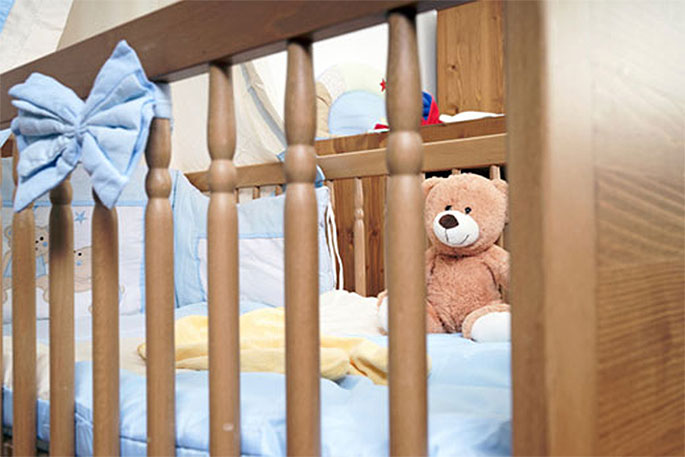A baby with breathing difficulties died after he was discharged from a Waikato hospital without a formal diagnosis or follow-up plan.
The three-month-old and his exhausted mother were referred to hospital by a GP in 2015, and spent four days there.
He was seen by a paediatrician and an ear nose and throat registrar, but a "scope" examination of nose and throat was cancelled for reasons Waikato DHB can't explain.
The boy was discharged without any scheduled follow-ups - though he was later taken to two medical practices - and died of respiratory failure
Waikato DHB's care breached the Code of Health and Disability Services Consumers' Rights, Health and Disability Commissioner Anthony Hill said.
The baby left hospital without being reviewed by an ear nose and throat (ENT) specialist, and without a confirmed diagnosis for "his noisy compromised breathing", says adviser and ENT specialist Dr Chris Thomson.
Nor was there a plan for further ENT follow-up unless he went downhill.
The boy's mum hadn't been sleeping well for nights "as worried he will stop breathing and so grizzly", medical notes say.
Clinicians noted the baby had a chronic snuffly nose and the noise when he inhaled seemed worse when he was lying down and after feeding.
The infant's GP thought it was laryngomalacia, described as a congenital softening of the tissues of the larynx above the vocal cords.
Care in the hospital included monitoring his oxygen levels, giving him nasal saline drops, and nasal suctioning.
A paediatrician said the ENT service should review him, and a registrar documented that the baby should have a "scope" of his nasal and throat passages.
But that examination was cancelled, and no-one could tell the commissioner why.
"The timing and urgency may be debated," says adviser and paediatrician Dr Jeffrey Brown, "but the undertaking [of a] laryngoscopy, particularly in Waikato DHB which has a specialist paediatric ENT service on site, should not have been an issue."
Anthony was also unable to tell whether any ENT consultants or specialists had input into the baby's care, despite hospital policy stating that the ENT review should have been done by a senior medical officer.
The baby's mother complained that "ENT chose not to investigate and send a potential sick infant home".
But a clinical unit leader for child health from Waikato DHB, referred to as Dr B, says the baby didn't need oxygen therapy at any stage, and was breathing without extra effort once his nostrils were cleared.
"The available information supports the view that [Baby A] was not unwell, and that his clinical condition was improving, such that there was not a health reason to be in hospital."
Offers of follow-up from paediatrics - such as a residential assessment and education unit - were declined by the family, says the DHB.
But that doesn't address finding the reason for the baby's noisy compromised breathing, says the commissioner.
And the baby's discharge summary, an important document for handover to primary health, was poor, says the HDC decision.
Anthony recommended the DHB apologise to the baby's family, and that it audit 50 cases where a child's care was shared between Paediatrics and ENT, to check documentation and consultants' communication.
He also recommended that the DHB report back on use of growth charts, testing of oxygen levels in the blood, and progress on actions to reduce the risk of similar events.
The public hospital has followed the recommendation of using a shared Paediatrics/ENT form to document the care of children with airway issues.
It also makes sure consultants communicate directly with each other for shared care, or when another specialty gives an opinion on a patient.



0 comments
Leave a Comment
You must be logged in to make a comment.